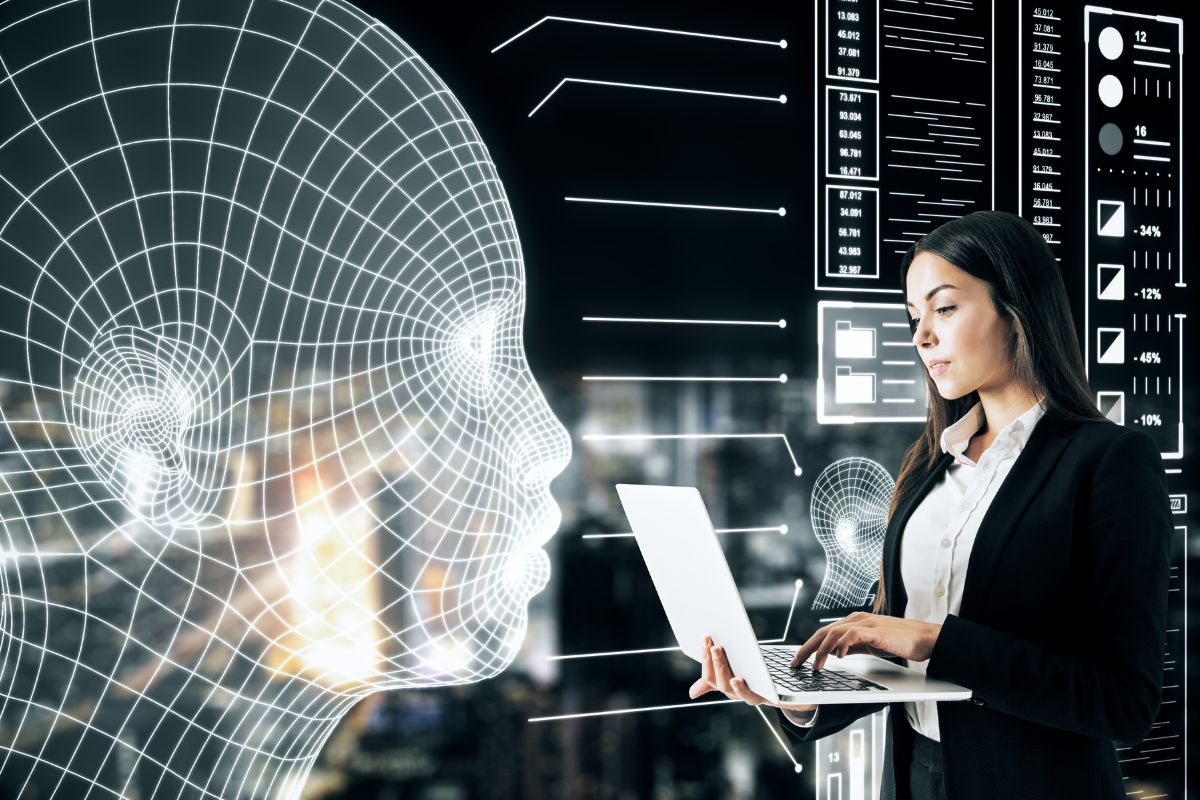From robotic surgeries to 3D body scanning, the healthcare industry undoubtedly has undergone a series of technological revolutions. These have enabled the healthcare centers to provide optimal treatment experience to every patient, regardless of any internal or external variable. Apart from this, the tech revolutions have also fastened operational speed and accuracy, allowing businesses to cater to consumer demands with ease with reduced flaws. Now, with generative AI practices, healthcare centers and businesses will have the potential to utilize data in ways beyond comprehension.
What is generative AI and how does it work?
Generative or Open AI is an advanced practice that utilizes machine learning algorithms, neural networks, and deep learning to find trends, relationships, and patterns in datasets. As a result, the AI-based models generate different types of outputs as per the requirement, including synthetic data, images, text, audio, video, and so on. One of the crucial aspects to consider here is that generative AI models take inputs in different forms with no restrictions.
Once the prompts are given from the user end, the AI algorithms and neural networks evaluate the available datasets and formulate relatable and human-like responses regarding the input. That’s why such models have higher success rates in training and learning from past data to predict forecasts and generate reports with maximum accuracy and precision.
How does generative AI benefit the healthcare industry?
Now that we have described how generative AI works, let’s have a quick look at the ways the healthcare industry can leverage this emerging technology for its benefit.
- Automation of repetitive workflows
First of all, generative AI models can easily automate routine, repetitive tasks in the healthcare industry that would otherwise take hours to complete. These include data entry, medical imaging, patient report generation, and so on. Automating the workflows will not only save time but also reduce errors and enhance overall productivity and business efficiency.
- Reduction of human errors
AI models trained with deep learning and machine learning algorithms and extending the concepts of neural networks have the potential to substantially reduce human errors in healthcare services. As a result, businesses can conduct their day-to-day operations flawlessly and with reduced damage.
- Streamlined communication
Also, AI models based on open artificial intelligence concepts facilitate better and streamlined communication between different domains. They can extract data from multifarious sources and process them further for accurate diagnosis and predictions.
- Increase in information visibility
One of the major benefits of integrating generative AI models in healthcare systems is the enhancement of information transparency and visibility. Doctors and healthcare workers can view medical reports, data entries, historical patient charts, and so on, and use the same for further predictive analysis.
- Enhanced simulation ability
As generative AI models can generate images, audio, videos, and other forms of output, medical colleges and training centers can use them to organize different training simulations. This can prove to be of great help to the students and interns in learning about complex surgeries, body organs, and so on.
How can generative AI be integrated with healthcare processes?
Generative AI has diverse applications in the medical and healthcare fields. From facilitating medical imaging to enhancing data security and privacy, there are so many areas where the models can be further implemented. Having said that, we have summarized the major applicability of open AI in the below section.
Medical imaging
AI models with deep learning frameworks and CNNs or convolutional neural networks can enhance medical imaging outputs, providing healthcare professionals with accurate and more precise results.
- The AI models can enhance the image resolution and quality, ensuring the tiniest part is visible on the screen.
- They can generate synthetic images of various surgery positions, body parts, internal organs, and so on. These will help in training students and interns about various aspects of the medical and healthcare fields.
- Thanks to the noise reduction ability of the generative AI models, the medical images will be more accurate and transparent.
- Automated segmentation is another way in which open AI models can help doctors to understand organ segments and anomalies.
Drug development and discovery
Another area where generative AI models will play a great role in the healthcare and medical industry is drug development and discovery. The ability of the models to make accurate and precise predictions based on past datasets can be utilized to understand potential patients in need of the drug, predict drug interactions, personalize medicinal treatments, and so on. Furthermore, the models can help in analyzing various datasets to facilitate complex drug discovery and development processes.
Risk analysis and prediction
Doctors and researchers can leverage the generative AI models to predict disease outbreaks, and surgery risks, recognition of potential hotspots for diseases, establishment of resilient supply chains, and so on. There is no doubt that this form of advanced AI practice will find the most use in this domain.
Conclusion
With the benefits and applications of generative AI in the healthcare and medical industries now clear, it’s time for businesses to plan for technology adoption and upskilling of medical professionals. Only then will this technology yield the expected results and can be used to its full potential.











